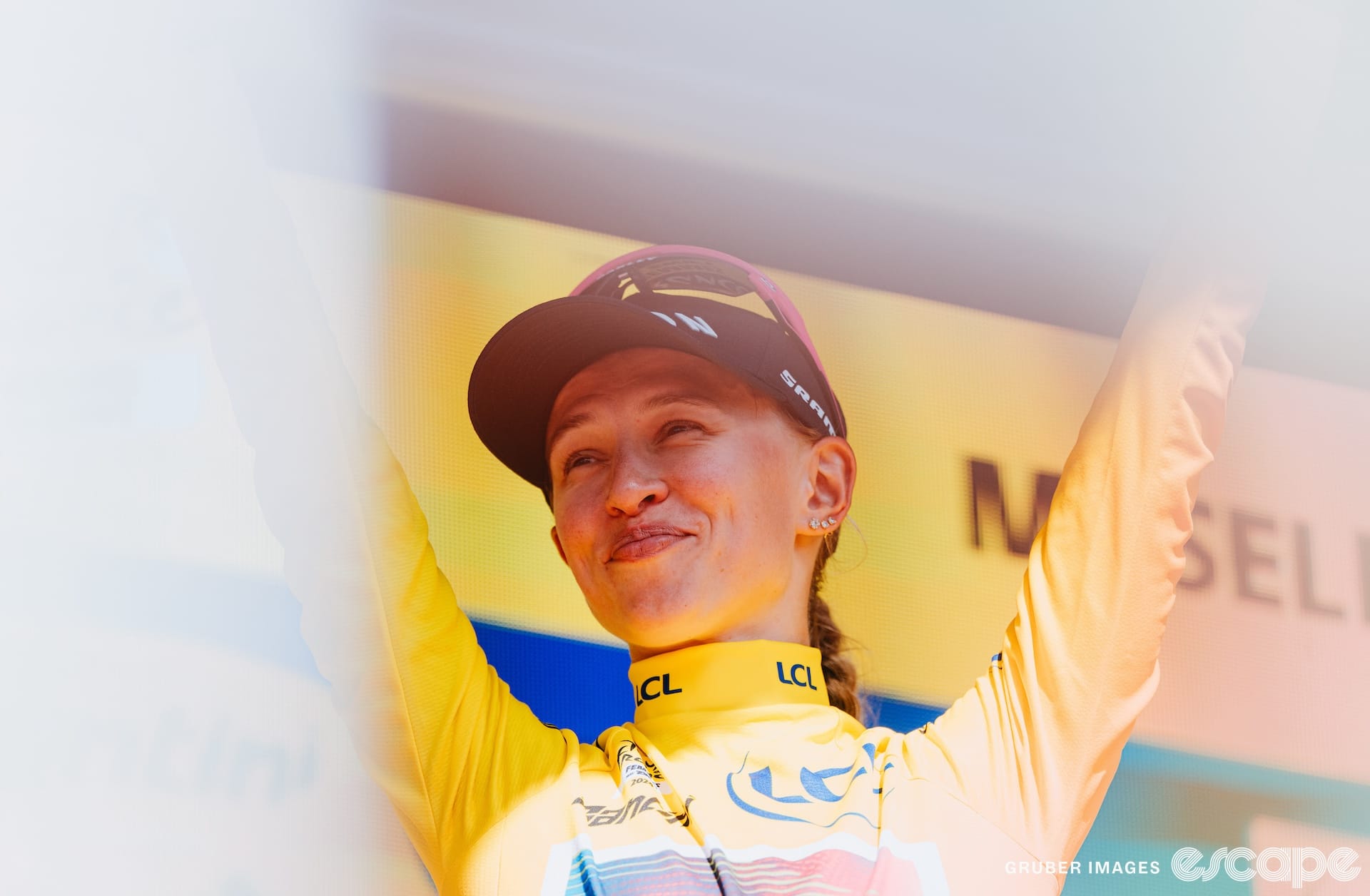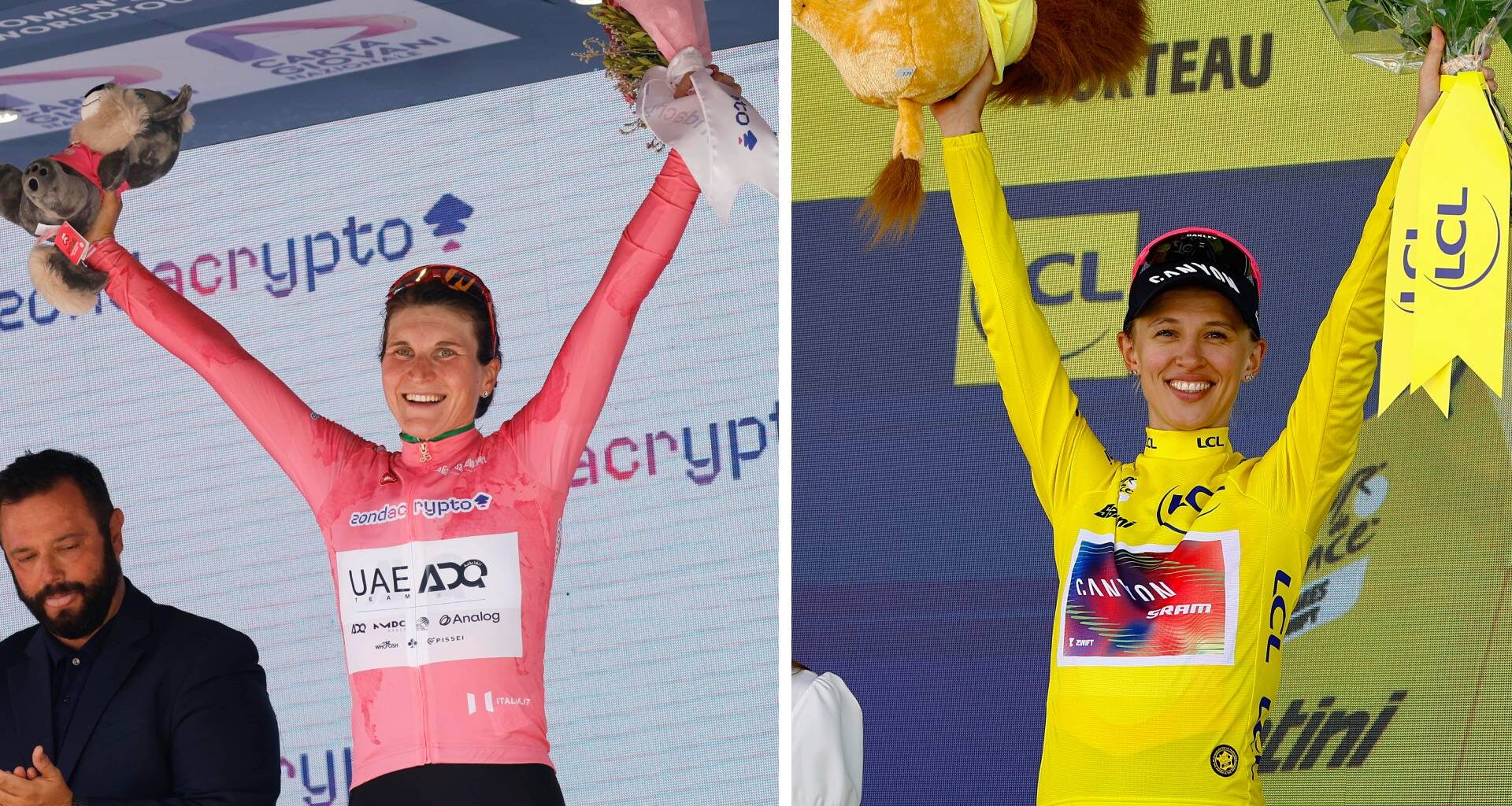
Cor Vos, Gruber Images
When the Tour de France Femmes avec Zwift gets underway in Vannes on Saturday, 49 riders will be racing their second Grand Tour in as many weeks. The Giro d’Italia Women only wrapped up 13 days earlier – the tightest turnaround yet between the two races – leaving little time to properly recover for the biggest stage race of the year. Particularly given how hard this year’s Giro was.
“It’s the hardest year I’ve ever done,” said Amanda Spratt (Lidl-Trek), a veteran of 10 Giri. “I know from just chatting with our team that that queen stage was one of the hardest women’s races ever on record, if not the hardest.”
So how are riders backing up from an especially hard Giro to be at their best by the Tour? And for those that are all-in for the Tour, is it better to do the Giro in the lead-up – like Giro winner Elisa Longo Borghini (UAE Team ADQ) did – or is it better to skip the Giro and instead head to altitude – like defending champ Kasia Niewiadoma-Phinney (Canyon-SRAM zondacrypto) or top favourite and 2023 Tour winner Demi Vollering (FDJ-Suez)?
 Will skipping the Giro pay dividends for Niewiadoma-Phinney again?To Giro or not to Giro
Will skipping the Giro pay dividends for Niewiadoma-Phinney again?To Giro or not to Giro
First: some context. Of the three editions of the Tour de France Femmes so far, one was won by a rider who raced the Giro (Annemiek van Vleuten in 2022, who also won the Giro). The other two editions were won by a rider who skipped the Giro (Vollering in 2023 and Niewiadoma-Phinney in 2024).
Of course, that’s not nearly enough data to draw any real conclusions from. And besides, there are many factors to consider when deciding whether or not to do the double, not least how each individual will respond to the difficulty of the Italian race.
Unsurprisingly, older, more-experienced riders with years of racing in their legs tend to have the sort of resilience that allows them to respond well to a heavy load like the Giro. Think riders like Annemiek van Vleuten, Elisa Longo Borghini, and indeed Amanda Spratt.
“We rode a very aggressive Giro, so I was really tired,” 37-year-old Spratt told Escape. “But I also think, as an older athlete, that my ability to recover and then back up again for the next Tour, is greater. I think there’s more of a risk for younger athletes trying to do both and getting overly excited and doing too much.”
This post is for paying subscribers only
Subscribe now
Already have an account? Sign in
Did we do a good job with this story?
👍Yep
👎Nope

